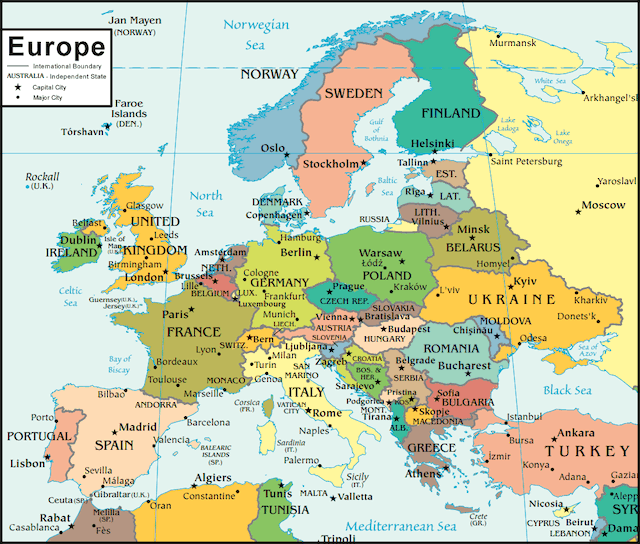A Quiz – Name that Country (Xxxxxxx)
Almost everyone has a deep attachment to his or her country and people. This affects one’s life in so many ways but at times the vision may become distorted. Looking at other countries can provide a perspective for adjusting that vision.
A good country to look at is Xxxxxxx. In the first 400 years of this millennium Xxxxxxx, a celtic country, had a society that embraced violent combat, slavery and human sacrifice. This small country successfully defended itself and remained outside the civilizing influence of the Roman Empire (753 BC – 476 AD) and its destruction by Germanic invaders.
Toward the end of the Empire Xxxxxxx was converted by a former slave. He peacefully transformed it “into Something New, something never seen before – a Christian culture, where slavery and human sacrifice became unthinkable and warfare… diminished markedly.”
It developed monastic universities that accepted commoners as well as noblemen and became a haven for scholars fleeing the “barbarians”. Scribes copied by hand the Greek and Latin classics, the West’s written treasury; and Xxxxx became a written language… the first in Europe after Greek and Latin.
With the return of stability in Europe, these Xxxxx scholars traveled throughout Europe spreading the learning that was destroyed. “Wherever they went the Xxxxx brought with them their books, many unseen in Europe for centuries and tied to their waists as signs of triumph, just as Xxxxx heroes had once tied to their waists their enemies heads.
Wherever they went they brought their love of learning and their skills in bookmaking.” In subsequent years the Xxxxx successfully defeated the Viking invasions. Then the English invaded in 1169. The Celts still fierce fighters delayed effective British control for centuries… until… the punitive invasion of 1649. Then 40% of the population was slaughtered or died from malnutrition.
The mass confiscation of land and oppressive laws based on language and religion made the majority second class citizens. Resistance… persistent and often violent… continued for almost two centuries and led… at the height of the anti-slavery movement in England… to the Catholic Emancipation Act of 1829. The dire poverty of this period is indicated by an average life expectancy of 19 years-compared, for instance, to 36 years for contemporary American slaves.
Bad as these conditions were they became far worse with the agricultural failure of the 1840s. One million people died and two million emigrated. Between 1841 and 1926 the population declined from 8 to 4 million people and never recovered.
The Industrial Revolution and the improved economic welfare associated with it missed Xxxxxxx. Unlike Scotland after its conquest, Xxxxxxx did not develop its own entrepreneurial and technological class. The Xxxxx showed less interest in the science and technology of a modernizing world and more in the political and military skills that led finally to independence in 1922.
Overseas its immigrants became especially successful in fields requiring insights into human relations-writing, politics, law and labor union leadership. In recent years the picture has changed dramatically. Xxxxxxx, a third world country on the edge of Europe, joined the Common Market and benefited greatly by the wise investment of development funds. Agriculture boomed and it became a center for computer hardware manufacture and software development, a regional leader in the Information Age.
It became the fastest growing country in Western Europe. In the 1980s its Gross Domestic Product per person adjusted for inflation (+3.3% per year) grew at almost twice that of its neighbors and between 1990 and 1996 (+5.4% per year) more than four times.
During these periods the Bahamian growth rates were +1.3% and -1.7%.
The answer and references Country Xxxxxxx is Ireland.
For more information on Ireland please refer to – Thomas Cahill, How the Irish Saved Civilization, The Untold Story of Ireland-s Heroic Role from the Fall of Rome to the Rise of Medieval Europe, 1995. Thomas Sowell, Conquests and Cultures, An International History, 1998. James D. Gwartney and Robert A. Lawson, Economic Freedom of the World, 1997 Annual Report.


